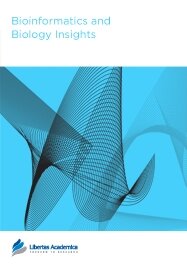

Publication Date: 07 Mar 2013
Type: Original Research
Journal: Bioinformatics and Biology Insights
Citation: Bioinformatics and Biology Insights 2013:7 97-117
doi: 10.4137/BBI.S11154

Towards the development of a systems biology-based risk assessment approach for environmental toxicants, including tobacco products in a systems toxicology setting such as the “21st Century Toxicology”, we are building a series of computable biological network models specific to non-diseased pulmonary and cardiovascular cells/tissues which capture the molecular events that can be activated following exposure to environmental toxicants. Here we extend on previous work and report on the construction and evaluation of a mechanistic network model focused on DNA damage response and the four main cellular fates induced by stress: autophagy, apoptosis, necroptosis, and senescence. In total, the network consists of 34 sub-models containing 1052 unique nodes and 1538 unique edges which are supported by 1231 PubMed-referenced literature citations. Causal node-edge relationships are described using the Biological Expression Language (BEL), which allows for the semantic representation of life science relationships in a computable format. The Network is provided in .XGMML format and can be viewed using freely available network visualization software, such as Cytoscape.
PDF (6.47 MB PDF FORMAT)
RIS citation (ENDNOTE, REFERENCE MANAGER, PROCITE, REFWORKS)
Supplementary Files 1 (1.31 MB ZIP FORMAT)
BibTex citation (BIBDESK, LATEX)
XML
PMC HTML

Bioinformatics and Biology Insights helps to reach all people with the latest results on research which directly helps them and with their needs. Three of our co-authors are from Burkina Faso, the malaria holoendemic region our research is based on, and serving as motivation for all our efforts for better treatment of malaria. It is good to be social and it is good to promote science world-wide through open access.
Facebook Google+ Twitter
Pinterest Tumblr YouTube